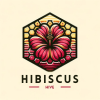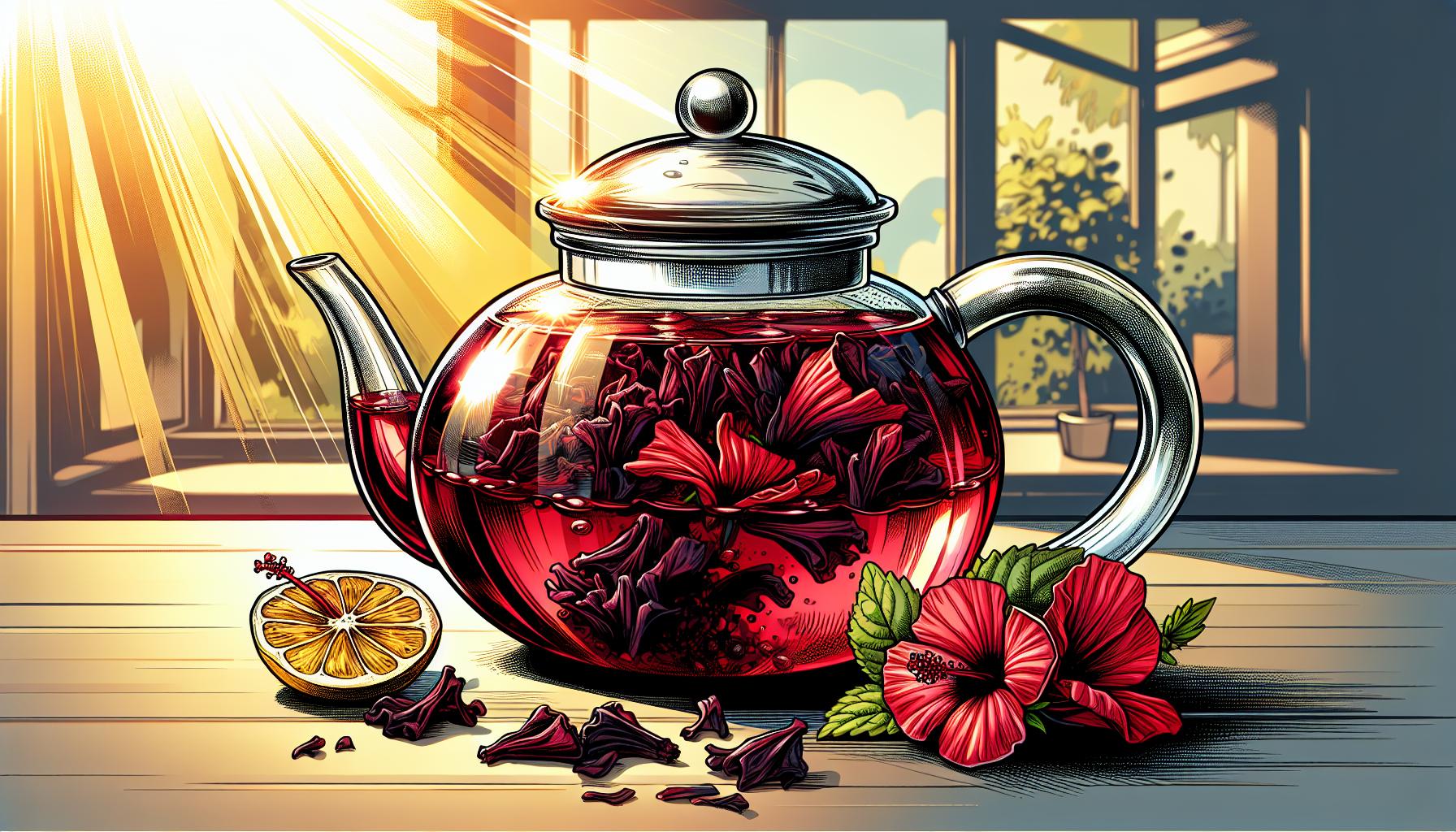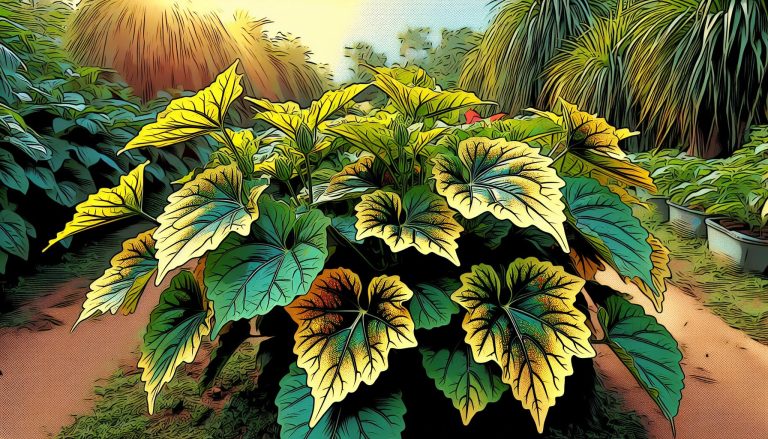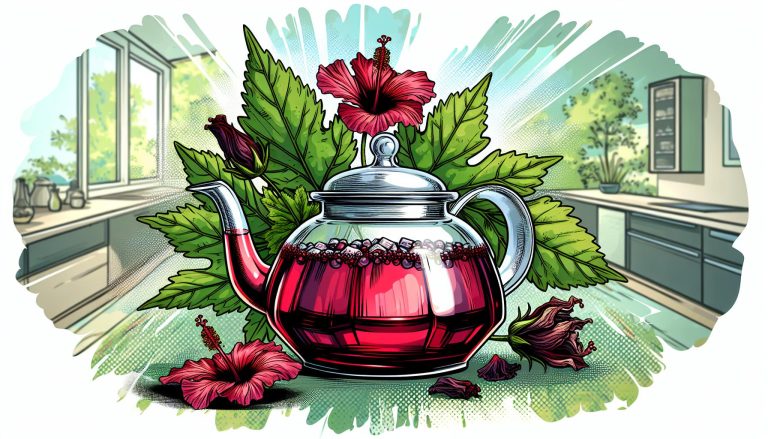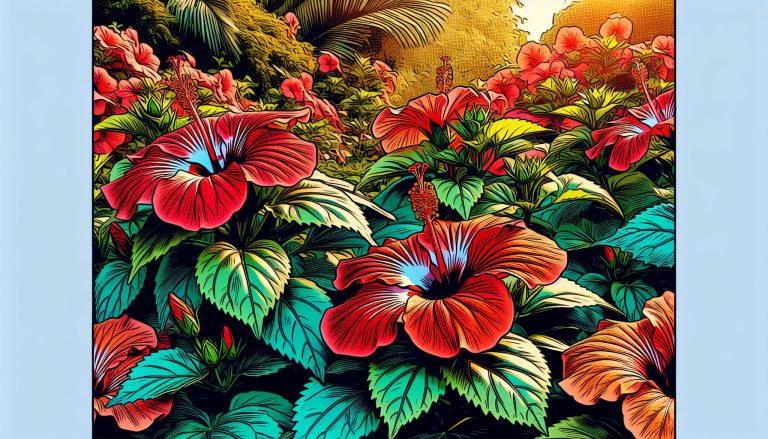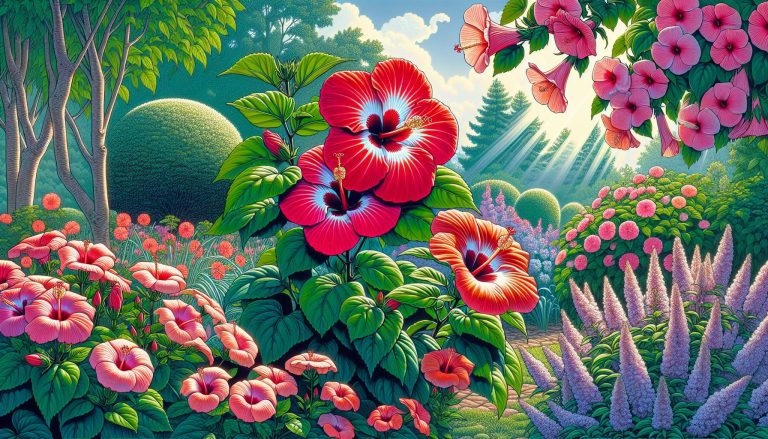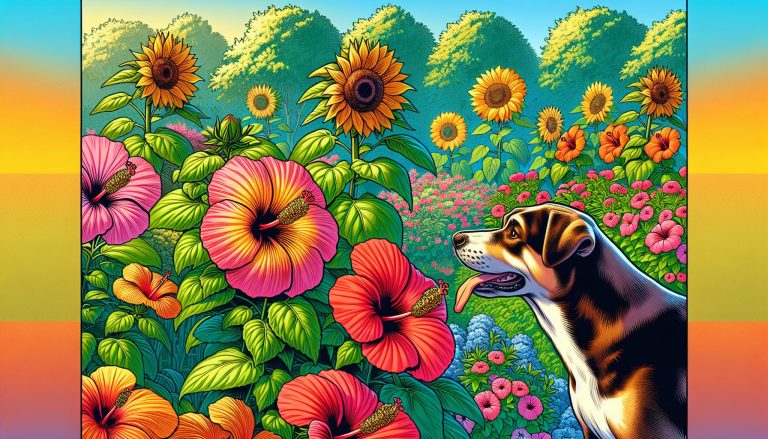Hibiscus Tea: A Caffeine-Free Delight? Discover the Truth About This Herbal Brew
As a tea enthusiast, I’ve often found myself pondering the caffeine content of various herbal brews. Hibiscus tea, with its vibrant color and tart flavor, has become increasingly popular among health-conscious individuals. But does this floral infusion pack a caffeinated punch?
I’ll dive into the world of hibiscus tea to uncover the truth about its caffeine content. Whether you’re looking to cut back on your caffeine intake or simply curious about this refreshing beverage, understanding what’s in your cup is essential. Let’s explore the facts and dispel any myths surrounding hibiscus tea and its potential energy-boosting properties.
What Is Hibiscus Tea?
Hibiscus tea is a vibrant, ruby-red herbal infusion made from the dried calyces of the Hibiscus sabdariffa plant. This caffeine-free beverage boasts a tart, cranberry-like flavor and is enjoyed both hot and cold in various cultures worldwide.
Origins and Varieties
Hibiscus tea originated in North Africa and Southeast Asia, where it’s been consumed for centuries. I’ve discovered that there are several varieties of hibiscus used for tea production:
- Hibiscus sabdariffa: The most common variety for tea
- Hibiscus rosa-sinensis: Known as Chinese hibiscus
- Hibiscus acetosella: Red-leaved hibiscus
Each variety contributes slightly different flavors and properties to the tea. Hibiscus sabdariffa, with its deep red calyces, is the primary source for commercial hibiscus tea production due to its robust flavor and high antioxidant content.
The Caffeine Question: Does Hibiscus Tea Contain Caffeine?
Hibiscus tea’s caffeine content is a common source of confusion for many tea enthusiasts. I’ll clarify this issue and provide insights into the caffeine content of various teas.
Understanding Caffeine Content in Teas
Caffeine content in teas varies significantly depending on the type of tea and its processing method. True teas, derived from the Camellia sinensis plant, contain caffeine naturally. These include black, green, oolong, and white teas. Here’s a breakdown of average caffeine content per 8-ounce cup:
| Tea Type | Caffeine Content (mg) |
|---|---|
| Black Tea | 14-70 |
| Green Tea | 24-45 |
| Oolong Tea | 37-55 |
| White Tea | 6-60 |
Factors affecting caffeine levels:
- Steeping time
- Water temperature
- Amount of tea leaves used
- Part of the plant used (buds, young leaves, mature leaves)
Herbal teas, like hibiscus, are infusions made from herbs, fruits, or other plant materials. These aren’t true teas and typically don’t contain caffeine unless blended with Camellia sinensis or other caffeinated ingredients.
Health Benefits of Hibiscus Tea
Hibiscus tea offers numerous health benefits due to its rich nutritional profile and bioactive compounds. I’ve researched the potential advantages of incorporating this caffeine-free beverage into your diet.
Antioxidant Properties
Hibiscus tea contains powerful antioxidants that combat oxidative stress in the body. These antioxidants, primarily flavonoids and anthocyanins, neutralize harmful free radicals. Studies show hibiscus extract has higher antioxidant activity than other common beverages, including green tea. Regular consumption may help protect cells from damage, potentially reducing the risk of chronic diseases like cancer and heart disease.
Potential Effects on Blood Pressure
Research suggests hibiscus tea may have a positive impact on blood pressure management. A clinical trial published in the Journal of Nutrition found that consuming hibiscus tea daily for six weeks led to a significant reduction in systolic blood pressure among adults with mild hypertension. The anthocyanins in hibiscus are believed to act as ACE inhibitors, helping to relax blood vessels and improve circulation. However, individuals on blood pressure medication should consult their healthcare provider before adding hibiscus tea to their routine.
How to Brew and Enjoy Hibiscus Tea
Selecting Quality Hibiscus Tea
When brewing hibiscus tea, I always start with high-quality dried hibiscus flowers or tea bags. I look for organic, whole hibiscus flowers or reputable brands of hibiscus tea bags to ensure the best flavor and health benefits. The color of dried hibiscus should be deep red or purple, indicating freshness and potency.
Brewing Methods
Hot Brewing
- Boil water in a kettle or pot.
- Place 1-2 teaspoons of dried hibiscus flowers or 1 tea bag per cup in a teapot or mug.
- Pour boiling water over the flowers or tea bag.
- Steep for 5-10 minutes, depending on desired strength.
- Strain the flowers or remove the tea bag.
- Sweeten to taste if desired.
Cold Brewing
- Add 1/4 cup of dried hibiscus flowers to 4 cups of cold water in a pitcher.
- Refrigerate for 8-12 hours or overnight.
- Strain the flowers and serve over ice.
Flavor Enhancements
To elevate the taste of hibiscus tea, I often experiment with these additions:
- Lemon or lime slices for added citrus notes
- Fresh mint leaves for a refreshing twist
- Cinnamon sticks or ginger slices for warmth
- Honey or agave nectar for natural sweetness
Serving Suggestions
Hibiscus tea is versatile and can be enjoyed in various ways:
- Hot: Perfect for chilly days or relaxing evenings
- Iced: Refreshing on warm days or as a summer cooler
- Mixed: Blend with other herbal teas for unique flavors
- Cocktails: Use as a base for non-alcoholic or alcoholic drinks
Storage Tips
To maintain the quality of hibiscus tea:
- Store dried flowers in an airtight container away from light and moisture.
- Keep brewed tea refrigerated for up to 3 days.
- Freeze leftover brewed tea in ice cube trays for future use in drinks.
By following these brewing methods and tips, I’m able to enjoy the full flavor and benefits of hibiscus tea in various forms throughout the year.
Comparing Hibiscus Tea to Other Caffeine-Free Beverages
When exploring caffeine-free alternatives to traditional teas and coffee, hibiscus tea stands out as a unique and flavorful option. I’ve found that comparing it to other caffeine-free beverages highlights its distinct characteristics and potential benefits.
Rooibos tea, like hibiscus, is caffeine-free and rich in antioxidants. It has a nutty, slightly sweet flavor profile compared to hibiscus’ tart, cranberry-like taste. Both offer potential health benefits, with rooibos known for its potential to improve bone health and hibiscus for its cardiovascular benefits.
Chamomile tea, another popular caffeine-free choice, is renowned for its calming properties. While hibiscus tea may support heart health, chamomile is often used to promote relaxation and improve sleep quality. The floral notes of chamomile contrast sharply with the bold, fruity flavor of hibiscus.
Peppermint tea, caffeine-free and invigorating, offers a cool, refreshing taste. It’s known for its potential digestive benefits, whereas hibiscus tea is more often associated with cardiovascular health. Both can be enjoyed hot or cold, making them versatile choices for any season.
Here’s a comparison of these caffeine-free beverages:
| Beverage | Flavor Profile | Key Benefits | Best Enjoyed |
|---|---|---|---|
| Hibiscus Tea | Tart, cranberry-like | Cardiovascular health support | Hot or cold |
| Rooibos Tea | Nutty, slightly sweet | Bone health support | Hot |
| Chamomile Tea | Floral, mild | Relaxation, sleep improvement | Hot |
| Peppermint Tea | Cool, refreshing | Digestive support | Hot or cold |
Herbal fruit teas, while caffeine-free like hibiscus, often contain added flavors or sweeteners. Hibiscus tea provides a natural, intense fruity flavor without additives, making it a purer choice for those seeking a natural beverage.
Coconut water, though not a tea, is another popular caffeine-free drink. It’s known for its electrolyte content, while hibiscus tea is prized for its antioxidants. Both can be refreshing choices, but hibiscus tea offers a more complex flavor profile.
When considering caffeine-free options, hibiscus tea emerges as a versatile choice. Its unique taste, potential health benefits, and flexibility in preparation make it a standout among caffeine-free beverages.
Potential Side Effects and Precautions
While hibiscus tea offers numerous health benefits, it’s essential to be aware of potential side effects and take necessary precautions. As with any herbal remedy, moderation is key, and certain individuals should exercise caution when consuming hibiscus tea.
Digestive Issues
Some people may experience mild digestive discomfort when drinking hibiscus tea. This can include:
- Stomach upset
- Gas
- Bloating
To minimize these effects, I recommend starting with small amounts and gradually increasing consumption to assess your tolerance.
Pregnancy and Breastfeeding
Pregnant and breastfeeding women should avoid hibiscus tea. Research suggests that hibiscus may have:
- Emmenagogue effects (stimulating menstrual flow)
- Potential to induce labor
These properties make it unsafe during pregnancy and while nursing.
Interactions with Medications
Hibiscus tea can interact with certain medications, particularly:
| Medication Type | Potential Interaction |
|---|---|
| Blood pressure medications | May enhance their effects, leading to excessively low blood pressure |
| Diabetes medications | Can potentially lower blood sugar levels further |
| Acetaminophen | May alter the drug’s effectiveness |
Always consult your healthcare provider before incorporating hibiscus tea into your routine if you’re taking any medications.
Allergic Reactions
While rare, some individuals may be allergic to hibiscus. Symptoms of an allergic reaction include:
- Itching
- Hives
- Swelling of the face or throat
- Difficulty breathing
If you experience any of these symptoms, discontinue use immediately and seek medical attention.
Effects on Blood Sugar
Hibiscus tea may lower blood sugar levels. While this can be beneficial for some, individuals with diabetes or hypoglycemia should monitor their blood sugar closely when consuming hibiscus tea.
Dental Health Considerations
The high acidity of hibiscus tea can potentially erode tooth enamel over time. To protect your dental health:
- Rinse your mouth with water after drinking hibiscus tea
- Use a straw to minimize contact with teeth
- Wait at least 30 minutes before brushing your teeth after consumption
By being aware of these potential side effects and taking appropriate precautions, you can safely enjoy the benefits of hibiscus tea while minimizing any risks.
Conclusion
Hibiscus tea stands out as a flavorful caffeine-free alternative to traditional teas. Its vibrant color rich antioxidant content and potential health benefits make it an appealing choice for those looking to reduce caffeine intake. While it’s important to be aware of potential side effects and interactions I believe hibiscus tea can be a delightful addition to any beverage routine. Whether you enjoy it hot iced or as a base for creative concoctions hibiscus tea offers a unique and refreshing experience. So why not brew a cup and savor the tart goodness of this caffeine-free herbal infusion?
